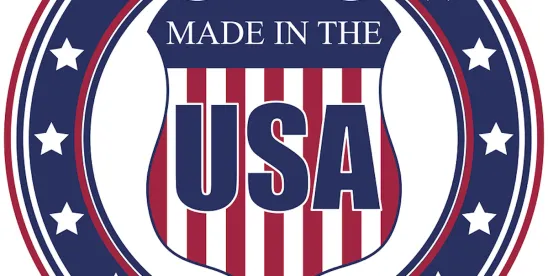The jury in the Banks v. R.C. Bigelow, Inc. litigation has returned its verdict, awarding consumers $2.3 million – short of the $3.26 million that plaintiffs’ counsel had requested. The Banks litigation challenged Bigelow’s “Manufactured in the USA 100%” claim used on some of its tea packaging. Plaintiffs argued that the claim was false because the company imported its tea; however, the company’s position in the litigation was that the claim referred to the US-based facilities where the teas were blended and packaged. Notably, due to an earlier-issued summary judgment order from the judge (finding that the challenged claim was literally false), the only questions before the jury were the amount of damages and whether there was intentional conduct by the company supporting an award of punitive damages. While the jury awarded compensatory damages, it did not find that there was proof sufficient to support a punitive damages award by clear and convincing evidence.
Manufacturers and retailers who wish to affix qualified or unqualified “Made in USA” statements on any products advertised or sold in the United States must comply with the FTC’s Labeling Rule at 16 C.F.R. 323 or Made in USA Policy Statement, respectively, on using these claims. To use an unqualified “Made in USA” claim, the product’s significant parts and processing must be of U.S. origin, containing no or negligible foreign content, and the final assembly should occur in the USA. Even if a product is not “all or virtually all” made in the USA per FTC guidance, advertisers may still be able to make qualified U.S. origin claims. Examples of qualified U.S. origin claims include, “Made in USA from imported parts,” or “60% U.S. content.” A retailer may make any qualified claim about U.S. content that is truthful and substantiated. These qualifications or disclosures should be sufficiently clear and conspicuous to consumers viewing the U.S. origin claim.
The FTC’s U.S. origin regulations are applicable not only to express U.S. origin claims, but also to implied U.S. origin claims. An implied U.S. origin claim may be inferred from the product’s packaging as a whole, including the use of specific phrases, images, and the broader context of the transaction. While references to the USA or American imagery alone might not constitute a U.S. origin claim, these images in combination with explicit language or other elements on the label could run afoul of FTC guidance and may require qualification.
The plaintiffs’ bar has pursued Made in the USA (and other national origin) labeling challenges either by sending demand letters or by filing lawsuits with some consistency over the past 5 years, with a peak 14 pieces of litigation filed in 2021. Due to the outcome in the Banks trial, there is some concern that the bar will refocus its attention on companies that are using “Made In USA” statements or references in their marketing. Companies using such labeling statements should confirm that their labels meet the FTC’s guidance.




 />i
/>i
